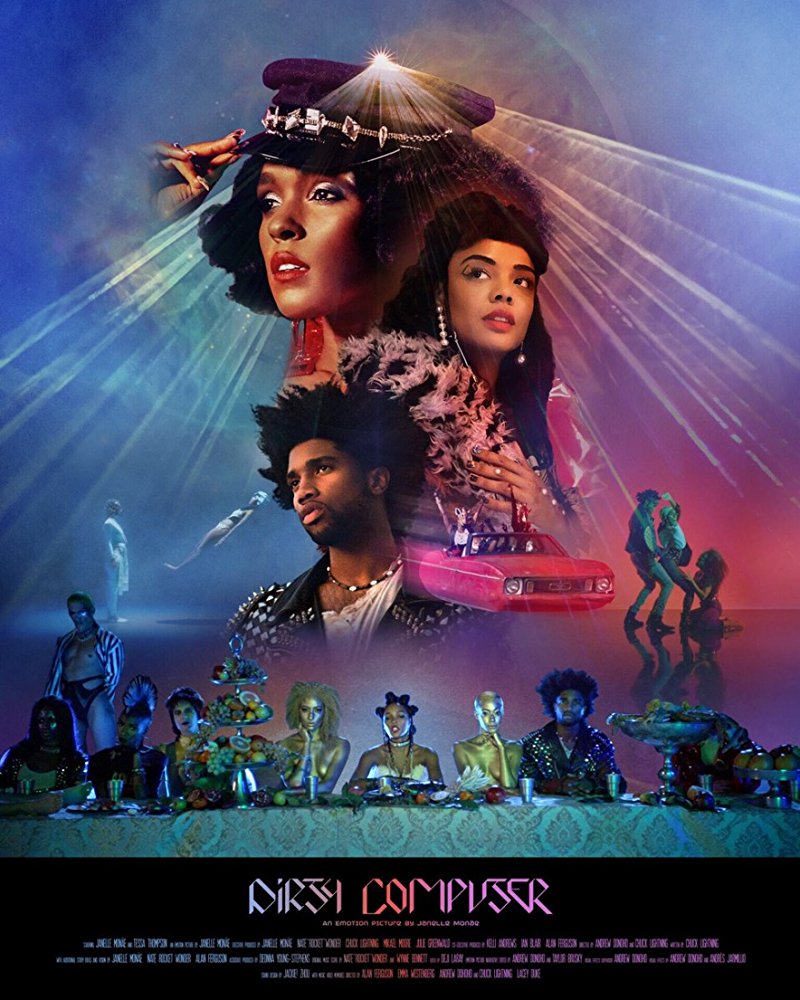REVIEW: Janelle Monáe captivates cyberspace and reality by uploading an emotion picture

Whether they are kicking back and just enjoying the timbre of her voice and the rhythm of the tracks or analyzing symbolic elements of power juxtaposed next to carefree melodic lines, Janelle Monáe’s new album “Dirty Computer” leaves listeners weak in the knees and thirsty for more. The phrase “dirty computer” is Janelle Monáe’s latest expansion of drawing analogies to the “other.” She describes ‘the other” being people of color, women, people in the LGBTQ+ community, those economically disadvantaged and other ostracized groups of people.
The “Dirty Computer” album puts Monáe’s alter ego, Cindi Mayweather of “The Metropolis Suite,” aside to focus on new characters like Jane 57821 played by Monáe Che played by Aaron Jayson and Zen played by Tessa Thompson. These characters are seen on the album, but on the “emotion picture,” which Monáe describes as “a narrative film and accompanying musical album.”
Monáe has not put a timeline on when she will come back to explore the stories of Cindi Mayweather, the protagonist of the ‘”Metropolis Suite,” who represents the clean image Monáe aspires to be. Monáe explained that part of the temporary deviation from Mayweather’s narrative was pressure to live up to the character she had built across three albums.
Despite the narrative switch, thematically “Dirty Computer” is very similar to its predecessors in many ways. Equality, empowerment, empathy and being one’s true self are still the foundation of Monáe’s body of work just as the visual elements of Afrofuturism. Sexual freedom is an element that has always been present in her work if you listen closely, but it takes center stage on her latest album. This can be seen in lyrics, visuals in the emotion picture and the instrumental beats. Monáe told Rolling Stone that before learning of the term “pansexual” she just considered herself “someone who has been in relationships with both men and women.”
One major tonal shift explored in “Dirty Computer” versus any of her previous albums is aggression in some songs and verses. This tone is expressed more in songs like “Django Jane” and “Screwed,” while snippets of it can be seen in songs like “Crazy Classic Life,” “I Like That” and “I Got The Juice.”
A glaring lyrical difference was her decision to use a racial slur in “Django Jane.” Most cinephiles and fans of “Django Unchained”, directed by Quentin Tarantino, would have foreseen this slur being used a mile away just by the title. While the use of the n-word may not bother some people, those that consider it a word that would ruin a song, this will be a disappointment. It has never appeared in any of her personal work before despite working with other musicians who use it regularly.
“Dirty Computer” continues the tradition of working with a variety of artist like Grimes, Prince, Pharrell Williams, Zoe Kravitz and Brian Williams. Just as eclectic are the sources that Monáe pulls from as visual and lyrical inspirations such as Marvel comics, Star Trek, the Bible, the National Museum of African-American Culture, Steveland Morris, Barack Obama, Quincy Jones and so many powerful civil rights icons and artists.

The strongest track – albeit most simple lyrically compared to other tracks on the album – is “I Like That.” The melodic chords are angelic, the bass makes it near impossible not to want to dance and the chorus is the best representation of what this album means to her. That message most listeners can find an association with whether it is as complicated as sexuality or as simple as a hobby. The tone of the album can be best wrapped up by her notes of this song.
“[I Like That is] inspired by wack ass fuckboys everywhere (from the trap house to the White House) who make the lives of little brown girls so damn hard. Like they told ya’ll back in those Black Women’s studies classes… BUT SOME OF US ARE BRAVE…”
“Dirty Computer” is an accumulation of her dystopian funk experiments with current exhibitions of neo-soul and pop/RnB sci-fi, Prince’s influential presence in production and her life, re-energized dissent due to present politics, and a desire to reveal more of herself than any of her conceptual work before this. Whether she continues to explore Jane’s/Her thoughts more or dive back into orchestrating Cindi Mayweather’s timeline, I and many other fandroids are eagerly anticipating what else can come from Monáe’s new found confidence and self-love.

